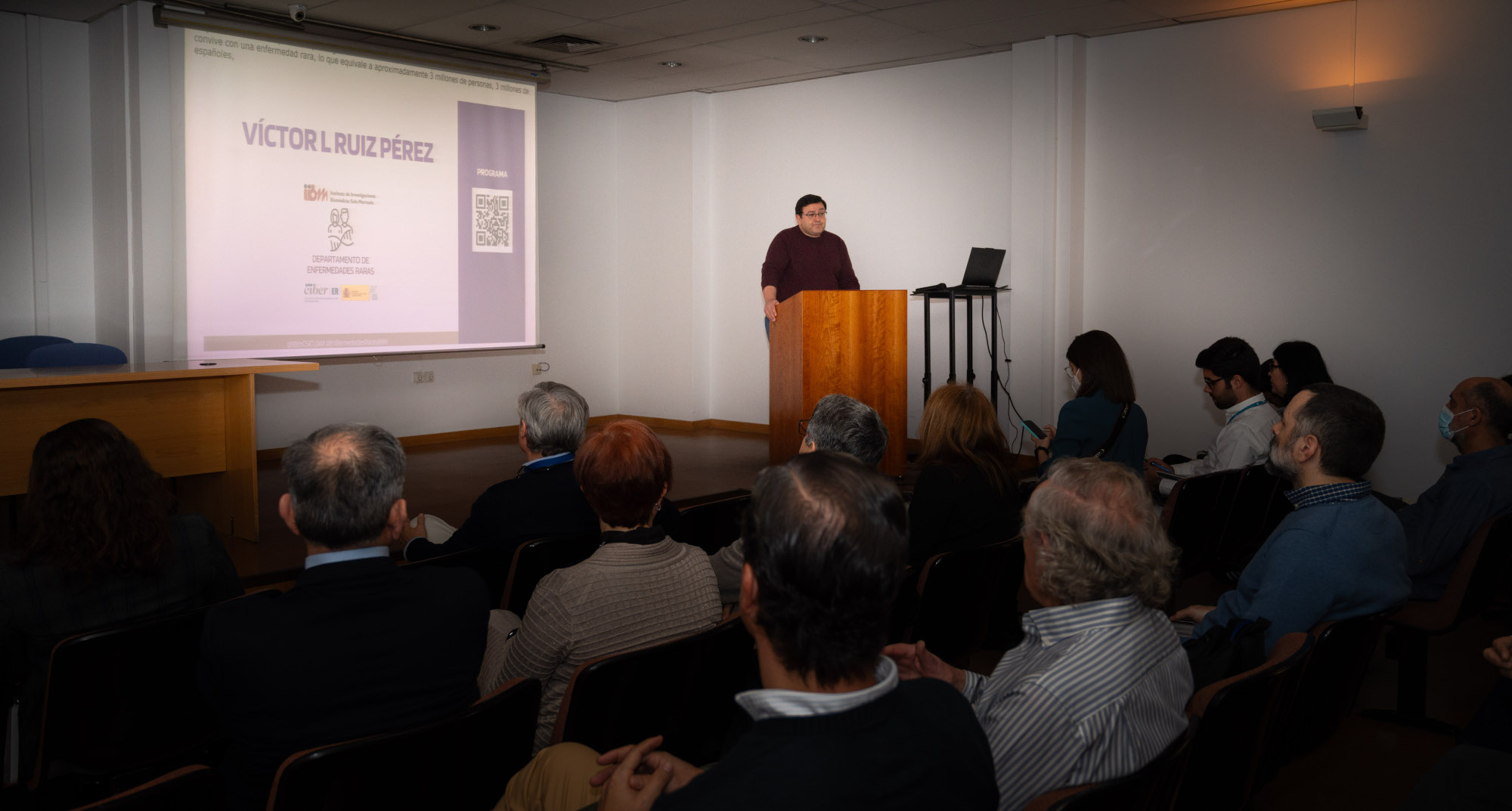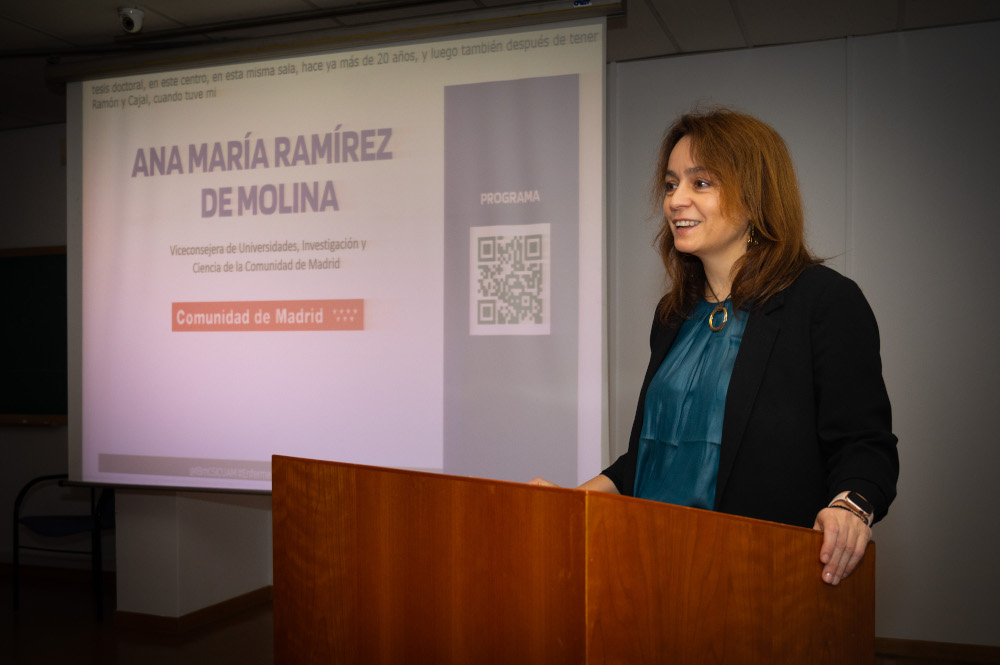The Instituto de Investigaciones Biomédicas Sols-Morreale (IIBM) CSIC-UAM is holding the I Workshop on Rare Diseases on February 26th. The researchers: Sandra Franco Caspueñas, Paula Clemente, Ricardo Escalante, Miguel Fernández-Moreno, Víctor Ruiz and Belén Peral have worked together to make the event a success and thus commemorate the World Day for Rare Diseases.
A disease is considered rare or infrequent when it affects less than 5 out of 10,000 people. However, because there are about 7000 different rare diseases, it is estimated that together they affect more than 3% of the population, which in overall numbers has a significant impact on health. These diseases constitute a major challenge in medicine and research as each of them has different causes and symptoms, which requires medical expertise and specific scientific knowledge for each of them, which is difficult to achieve with such a small number of patients compared to other more common diseases. 70-80% of rare diseases are of genetic origin and are mostly due to mutations in genes encoding proteins whose function is poorly or not at all known. All this means that obtaining resources to investigate the causes of these diseases, their treatment and possible cure is challenging.
Due to all these difficulties, the visualization of rare diseases is essential to promote their study, and patient associations play an essential role in this regard. February 29th is World Rare Disease Day, a date to reflect on the enormous challenge we have as a society to help those affected and their families to make their disease visible. To commemorate this date, the Instituto de Investigaciones Biomédicas Sols-Morreale (IIBM) CSIC-UAM through its Department of Rare Diseases has organized a day that aims to communicate the scientific work undertaken by its research groups, with the participation of patient associations and representatives of relevant institutions such as the CSIC and the Community of Madrid, through the Vice-Ministry of Education, Research and Science. This 1st Workshop on Rare Diseases, which will be held at the IIBM on February 26, will include an invited lecture about gene therapy given by Dr. Juan Antonio Bueren, as well as short communications from all the research groups that integrate the Department, and from patients' associations. This event is a unique opportunity to exchange scientific information, personal experiences and to highlight the need to invest in research into these diseases. In addition, the day will include real-time subtitles, as a nod to patients suffering from hearing loss.

The Department of Rare Diseases of the IIBM brings together research groups that study rare diseases from a basic perspective but with strong clinical and translational connections. These diseases include those caused by defects in the function of mitochondria, a central organelle in cellular bioenergetics and metabolism, which groups a large number of diseases. Diseases such as BPAN and CHAC due to defects in intracellular degradation pathways essential in cell metabolism, such as autophagy. Ciliopathies associated with alterations in the formation or function of primary cilia, and telomeropathies such as dyskeratosis congenita and idiopathic pulmonary fibrosis caused by defects in the maintenance of telomeres, regions at the ends of chromosomes that play an essential role in their stability. Another group is working on the identification and study of new genes that cause rare developmental diseases, such as osteogenesis imperfecta, Ellis-van Creveld syndrome and other skeletal dysplasias. The molecular basis of hearing loss and rare tumor myelinopathies are also the subject of research in the IIBM Department of Rare Diseases.
In addition, several groups from the rest of the Departments of the center such as Cancer, Metabolic and Immune Diseases and Neurological Diseases and Aging also dedicate part of their research work to the study of rare pathologies. This is in line with the diversity of scientific fields studied at the IIBM, reflecting the complexity and diversity of human diseases.
The link to the program can be read HERE.
